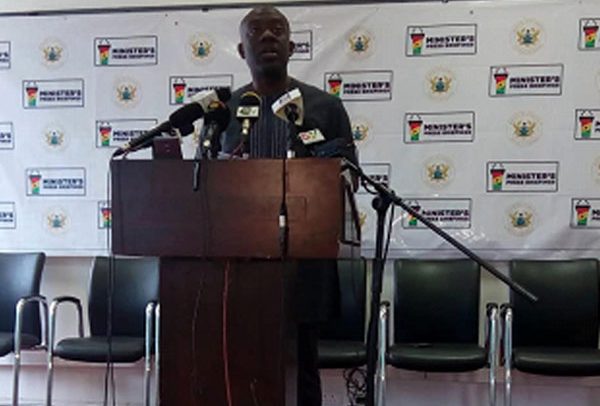Kojo Oppong Nkrumah briefing journalists
Government has secured $4.5 million to provide technical and vocational training to about 200 Ghanaians under the Accelerated Oil and Gas Capacity Programme (AOGC.)
The programme is expected to develop the capacity of beneficiaries who are to be selected in consultation with industry sector groups in core technical areas such as wielding and metal fabrication, pipe fitting, non-destructive test, drilling and mechanical technology.
The training programme is expected to start in January 2019 and end in December next year.
After the training, the beneficiaries are expected to be given skilled upstream oil and gas jobs.
Minister of Information, Kojo Oppong Nkrumah, who made this known on Wednesday, December 5 in Accra during the Information Ministry’s bi-weekly press briefings, revealed that the project would develop the capacity of technical and vocational institutions in Ghana, as well as universities to offer world-class training and certifications in the oil and gas industry.
It would be recalled that President Akufo-Addo launched the programme in November 2017 in fulfillment of his promise to create opportunities for Ghanaians in the upstream sector.
Mr. Oppong Nkrumah reiterated that the AOGC Secretariat had been set up under the Petroleum Commission to ensure the realization of the above mentioned objectives.
“One of the programme’s significant successes so far is the securing of some $4.5 million from Aker Energy to provide technical training and certifications to train mechanical technicians, electrical technicians, instrumentation technicians, welders and metal fabricators, NDT technicians to ensure that they all at the same time acquire BOSIET (Basic Offshore Induction and Emergency training) to facilitate their smooth transition into the upstream petroleum sector as qualified technicians.”
According to the Minister, “This will provide a further 200 skilled workers in the upstream industry and ensure that increasingly more of the jobs in the upstream sector are done by Ghanaians.”
By Melvin Tarlue


